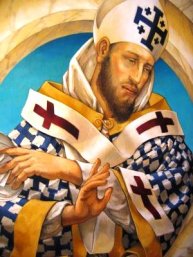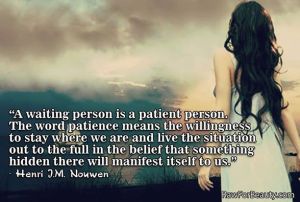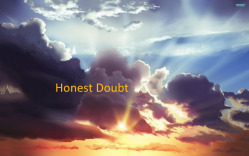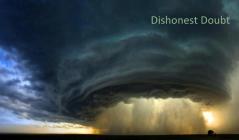I was speaking with some men at a local Scripture study who were discussing this week’s Gospel passage. At one point, the conversation went as follows:
Guy #1: “We all know that, when it comes to our faith, belief and trust is an issue. We’ve sat next to those people …. ”
Guy #2: “Hey, I haven’t sat next to those people. I’ve BEEN those people.”
In I John 5:1 we read: “Beloved: everyone who believes that Jesus is the Christ is begotten by God.”
Belief is an issue in this week’s Gospel.
A priest was sitting with several other priests at dinner, several of whom were pastors. The pastors were sharing stories about what was occurring at their respective parishes.
At one point of the conversation, one of the young priests exclaimed, “I think I’d like to become a Pastor some day.” To that, an elder priest said,
“That’s a noble idea. But, you know, you don’t decide to be a Pastor. You are CALLED to become a Pastor. And before you are, you might want to consider how you feel living with, and dealing with, crazy, difficult, impossible, unreasonable people, people who are broken. Because you will have to come to believe, that those are the very ones you have been called to live with and shepherd.”
We who believe are shaped by the story of our lives. But we were never meant to address life choices about right/wrong or belief/unbelief alone. That story has us - as a character among other people who have their own story as well.
In the story of our “Tribe” (the Catholic Church) that we will be hearing for the 50 days of Easter, the other characters were people who were broken:
- Judas betrayed;
- Thomas doubted;
- Peter denied;
- Philip, Bartholomew, Matthew, Simon and Jude ran and hid.
All were cowards, all were broken. And YET, they were the very ones “called” by Christ to found and lead the Church.
Do you believe that?
I know of a priest who spoke of his early seminary days. In his class were numerous, incredible men: brilliant scholars, talented musicians, capable administrators, handsome athletic figures. One by one, over the next 9 years, they all left.
Just before Deaconate Ordination, my friend looked around at the rogues gallery remaining and said to the Lord, “This is it? THIS sad bunch is the group you want to ordain? I do NOT BELIEVE this!” Years later, looking back over 25 years of priesthood, he said that those priests had become some of the best, most pastoral, most effective, most fun, and most beloved, priests of the diocese.
How did they do that?
The reason they were so successful was they were pulled into a story and were shaped by hanging around a bunch of other broken people and a former crook who had gotten himself in trouble, arrested and killed. They were hanging around Christ and His followers, letting Christ and the community help and support and shape and form them.
The Jerusalem Catechesis, or otherwise known as the Catechetical Lectures of St. Cyril of Jerusalem (+386) consists in twenty-three lectures. The first eighteen were delivered to the candidates for baptism during Lent and the last five to the newly baptized during Easter.
St. Cyril makes sure his readers understand his instructions:
Do not, then, regard the Eucharistic elements as ordinary bread and wine: they are in fact the body and blood of the Lord, as he himself has declared. Whatever your senses may tell you, be strong in faith.
Consider therefore the Bread and the Wine not as bare elements, for they are, according to the Lord’s declaration, the Body and Blood of Christ; for even though sense suggests this to you, yet let your faith convince you. Judge not the matter from the taste, but from your faith be fully assured without misgiving, that the Body and Blood of Christ have been provided to you (Lecture 22, 6).
You see the cup here spoken of, which Jesus took in His hands, and gave thanks, and said, This is My blood, which is shed for many for the remission of sins (Lecture 22, 6-7, 9).
Do you believe this? Do you believe that what we receive is the “Body and Blood, soul and divinity of Jesus Christ” or do you think that it’s just “blessed bread”? Why is this important? In life you will have to deal with “honest” vs “dishonest” doubt:
Honest doubt is doubt but seeking, struggling, searching, looking for an answer with hope.
Dishonest doubt is skeptical, someone who has chosen simply not to believe.
- Blessed bread won’t help you when life gets tough.
- Blessed bread won’t help you when you’re confused and afraid.
- Blessed bread won’t help you make the right decisions on choosing what is right and wrong - good or evil.
- Blessed bread won’t help with your doubts.
- Blessed bread won’t fix someone who is broken. Only Christ can do that.
And for some crazy reason, Christ decided that the way he wanted to hang around a bunch of broken people was through this thing dealing with “thanksgiving” or “being grateful” or “gracious offering” or “Eucharist” in Greek.
A summary of this can be found in Matthew 22:
“The Kingdom of God is like a feast where the poor, the outcast, the dirty, the messed up, all of the my friends, and all of them invited in to be seated next to me - and to get fed.”
Audio version of the homily is here:



Father, I just listened to your homily. Thank you for the powerful emphasis that Jesus is truly present BODY, BLOOD, SOUL, and DIVINITY in the Eucharist. With the grace of the Holy Spirit, I hope your emphasis convinced those who do not believe or are seeking for the truth.